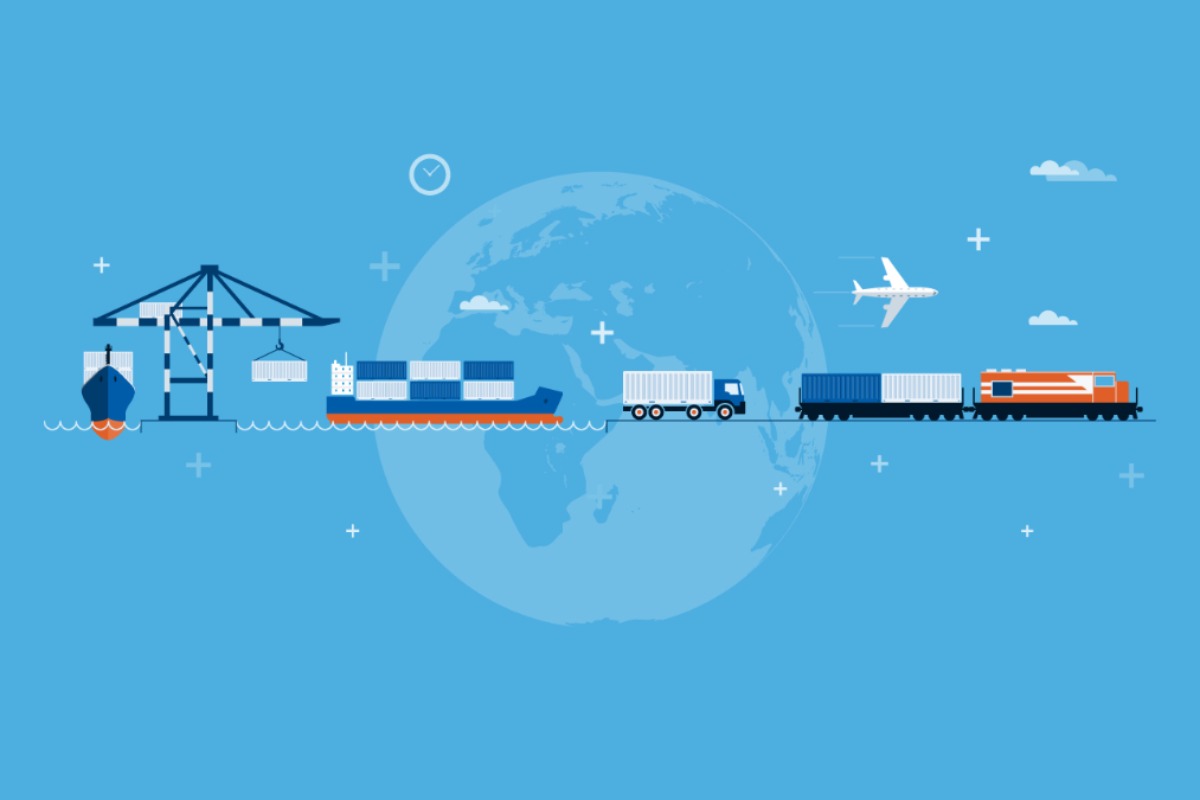What’s going on with the world’s supply chain?
Enigma Forensics is wondering about the impact the Coronavirus/COVID-19 pandemic has had on the world’s supply chain. Lee Neubecker sits down (virtually) with Geary Sikich from Logical Management Systems. Both agree the spread of Coronavirus/COVID-19 has been a wake-up call for the world.
First of all, we think it’s safe to say everyone is feeling the impact of COVID-19! It has been devastating for every human being on the planet. What have we learned? Supply chains that carry life-saving products were pinched off and that presented a huge shortage sending the medical professionals and government agencies scrambling to provide much-needed protective medical supplies. Many businesses are dependent on global sourcing and have now found themselves facing hard choices amid the supply chain disruptions.
Both Lee and Geary, agree shipping is an under-reported issue that has been negatively impacted by COVID-19. We all know the story of stranded cruise ships that were quarantined at sea and as a result cruise ships became super-spreaders of the virus. But, what about the shipping industry? Specifically, cargo, oil tankers, and container ships. We know these types of goods transports have limited crews, to begin with, and now we have learned that some of these ships have been quarantined at sea. If they make it into port they are quarantined based on the fact the products they are transporting could possibly be infected. Check out this video to learn more about the COVID-19 impact on the supply chain.
Was COVID-19 pandemic a wake up call?
Lee Neubecker (LN): I am here today with who is that? Geary Sikich, you wore your mask.
Geary Sikich (GS): Yes I’ve been completely protected with this mask.
LN: Is that comfortable?
GS: No, it’s hot and it is made out of rubber. So it’s to kind of a, not the greatest mask in the world if you choose to wear one but it’s good for comedy and it’s almost Halloween so.
LN: So how much did that set you back?
GS: $10 on Amazon
LN: Now how’s the breathability of that thing?
GS: Actually the breathability is pretty good. It actually is pretty good. Then, the biggest issue you face with it is just that you’re going to have body heat kind of contained. If you don’t wear it for a long period of time or you don’t have headphones on you should be okay.
LN: So I had you on the show today. I wanted to ask you some questions about what impact the COVID-19 pandemic is having on our trade environment with imports and exports.
GS: So in general, as the pandemic started to evolve, we saw the impact in a number of different areas. There was a lot of impact on the cessation of imports by countries China, for example, ceased and used force measures to stop oil shipments from coming in. The US has had a big backlog on all their ports, because of concern over making sure that what’s coming into the country is not tainted. The bigger impact and this was one that really is kind of been under-reported if you will, has been that the shipping industry., now take cruise lines out of it ’cause they got a tremendous amount of media coverage with cases there. But what we have is a real issue with shipping, the ships that are container ships, bulk ships, cargo ships of all types, including your large oil carriers. There is a limitation of people who serve on those ships, crews. There’s been a lot of crews that because of Coronavirus/COVID-19 infection on a ship have been quarantined out at sea. And so we’re seeing ships being taken off usage because they’re sitting being quarantined. We’re seeing so a disruption in the supply chain because of a key component of the supply chain, not related to the end products or the originating product.
LN: So all the just in time delivery and assembly is really a parenting problem we say can’t rely on the GPS and calculated travel time.
GS: And actually there’s been another issue that’s come up with, with the systems on ships because of cybersecurity obviously, and in a general way, but they’ve had a tremendous impact in those areas because of that. So shipping has been hit majorly as has air transport because airlines have cut back so tremendously on flights.
LN: All right so in terms of some of the supply chain security programs they have out there, what are you seeing that companies are doing to protect their supply chain implementing these programs?
GS: A lot of what I see right now is that companies are trying to find alternative suppliers so that they can have a broader base of supply chain. So from where we were single-source supply, we’re now looking at moving towards multiple source supply so that they can continually keep a feed of supply coming in.
LN: Yeah because I’d imagine if certain regions experienced the COVID-19 outbreak more, that would disrupt the supply either going to or coming from that region.
GS: Yeah, and you think about things like border closures, you think about things like the inspection process, the concern over whether or not there is going to be contamination coming in in a cargo container you know, may have.
LN: Are they having, in some cases are they having the ships quarantined when they arrive?
GS: In a lot of cases
LN: Before they are unloaded?
GS: Yeah and that impacts tremendously because you got to take a look at the shipping industry and the cargo shipping. They have gone from smaller cargo ships to mega cargo ships. And these mega cargo ships can have, you know, a lot of containers, hundreds of containers if not more. And the problem is when you lock in a ship like that, your shipment may be one of many that gets stuck. And when you take that size ship out of service you can’t replace it very quickly because what happens in the industry is very simple. They’ve gone to larger ships to carry greater amounts. So economy of scale, and they’ve taken the smaller ships and as is now the case with the cruise industry they’re in yards in India and various other countries and shipbreaking yards. So they’re completely being taken apart and they’re no longer part of the service of shipping that’s out there. Now so replenishment of the container, the vessel, is going to have an impact. And if you take one out, you don’t have an easy replacement for it.
LN: Geary well, thanks a bunch for being on the show. I really appreciate it.
GS: Thank you Lee I appreciate your time.





